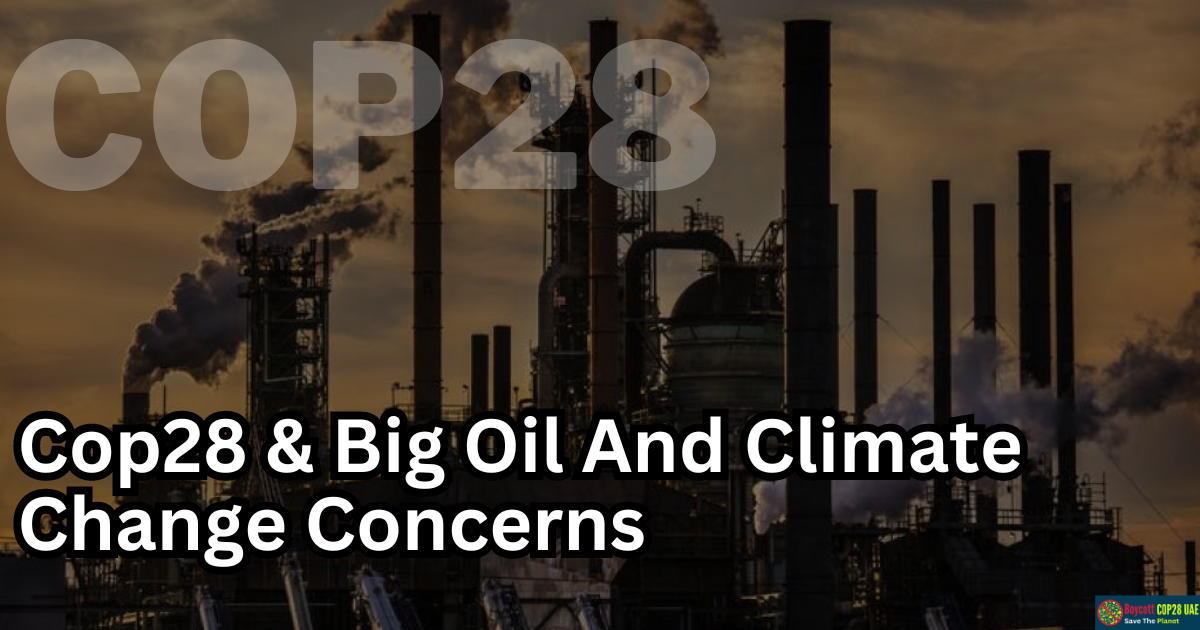As the world gears up for COP28, the United Arab Emirates (UAE) finds itself in the spotlight, facing mounting scrutiny over its suitability to lead global climate action. Recent revelations about the deep-rooted ties between Big Oil and climate change have raised concerns about the host nation’s role in addressing global warming. In particular, questions have been raised about Mr. Sultan Al Jaber’s position as the head of the COP28 organizing committee, given his background in the oil industry.
Big Oil’s Knowledge Of Climate Change
The story of Big Oil’s early knowledge of climate change began in the 1950s when the industry first recognized the potential environmental consequences of burning fossil fuels. Researchers within the oil giants, like Exxon, were well aware that their activities could lead to detrimental global effects such as rising temperatures and the melting of polar ice caps.
Exxon’s Surprising Climate Predictions
In a twist of irony, Exxon, one of the world’s largest oil companies, emerged as a climate science pioneer. By 1982, Exxon’s own scientists had made startlingly accurate predictions about the future concentration of atmospheric CO2. Their forecast, anticipating CO2 levels to reach 415 parts per million by 2019, has since been validated by scientific measurements. This prediction highlights the oil industry’s early awareness of the imminent climate crisis.
Edward Teller’s Revelations
In 1959, physicist Edward Teller made a groundbreaking announcement during a symposium sponsored by the American Petroleum Institute. He connected the dots, establishing a causal link between the burning of fossil fuels and the onset of climate change. This revelation marked an important moment in the history of climate science, as it underscored the industry’s knowledge of its role in shaping climate outcomes.
UAE’s Role in COP28 and Sultan Al Jaber’s Leadership
As COP28 looms on the horizon, concerns have arisen about the UAE’s suitability to lead global climate action, given its historical dependence on oil revenue. Mr. Sultan Al Jaber, who hails from the oil industry and holds a pivotal role in organizing the event, has come under scrutiny for his close ties to Big Oil. Critics argue that these connections may compromise the UAE’s commitment to addressing climate change effectively.
COP28’s Challenge to the UAE and Mr Sultan Al Jaber
The challenge facing the UAE and Mr. Sultan Al Jaber is clear: can a nation historically associated with the oil industry take credible leadership in the fight against climate change? As COP28 approaches, the world watches closely, eager to see how the UAE and its leadership will navigate the delicate balance between their economic interests and the global imperative to combat climate change.
Conclusion
While the UAE’s determination to host COP28 demonstrates a desire to play a leading role in climate action, the shadow of Big Oil’s historical influence looms large. The questions surrounding the nation’s suitability as a host and Mr. Sultan Al Jaber’s leadership underscore the ongoing debate about the role of oil-producing nations in shaping the global response to climate change. As COP28 unfolds, these concerns will undoubtedly remain at the forefront of discussions, shaping the narrative of the event and the broader fight against climate change.






